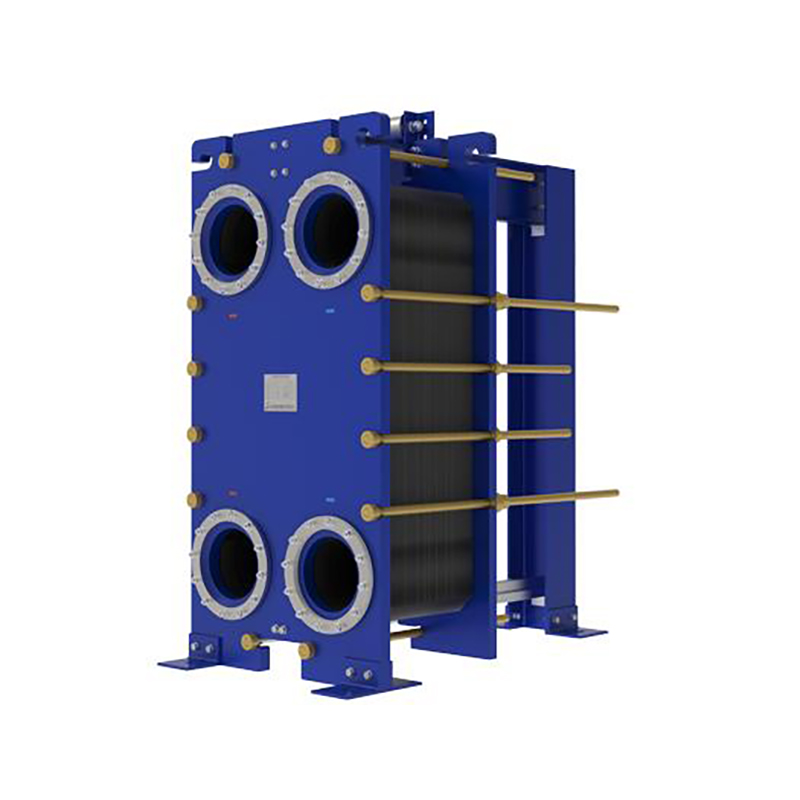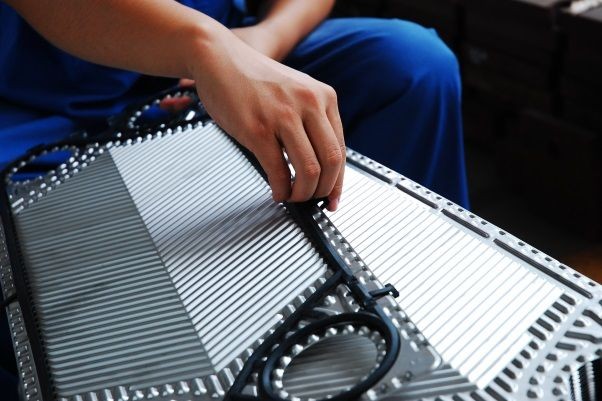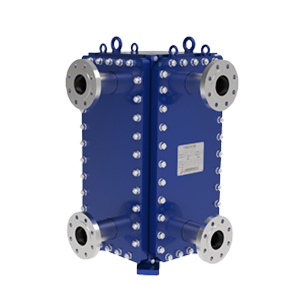5 key roles of plate heat exchanger gaskets.
Plate heat exchanger gaskets perform 5 key roles: ...
More
A heat exchange unit is a mechanical device designed to transfer thermal energy between two or more fluids (liquids or gases) without mixing them. These units are critical in industries such as HVAC, power generation, chemical processing, and refrigeration, where precise temperature control is essential. Heat exchangers come in various types, including shell-and-tube, plate, and air-cooled designs, each optimized for specific applications. They improve energy efficiency by recovering waste heat, reducing operational costs, and minimizing environmental impact. Modern units incorporate advanced materials like stainless steel or titanium for durability and corrosion resistance, ensuring long-term performance in demanding environments.
Heat exchange units are widely used in commercial buildings for climate control, in manufacturing plants for process cooling, and in renewable energy systems like solar thermal plants. Their versatility allows integration into complex systems, enhancing overall thermal management. For example, plate heat exchangers are compact and highly efficient, making them ideal for space-constrained installations. According to industry reports, the global heat exchanger market is projected to grow at a CAGR of 5.3% from 2023 to 2030, driven by rising demand for energy-efficient solutions and stricter environmental regulations. Proper maintenance, such as regular cleaning and leak detection, ensures optimal performance and extends the unit’s lifespan.
Choosing a heat exchange unit offers significant advantages, including energy savings, reduced carbon footprint, and enhanced system reliability. Industries adopting high-efficiency units report up to 30% lower energy consumption compared to conventional systems, as highlighted by the U.S. Department of Energy. These units also comply with international standards like ASME and ISO, ensuring safety and performance consistency. Their modular designs allow for easy scalability, accommodating fluctuating thermal loads without compromising efficiency. Additionally, heat exchangers reduce water usage in cooling applications, aligning with sustainable practices.
Investing in a heat exchange unit translates to long-term cost benefits. For instance, waste heat recovery systems can cut operational expenses by repurposing excess thermal energy for other processes. Case studies from the food processing industry show payback periods as short as 2 years due to reduced fuel costs. Leading manufacturers like Alfa Laval and Danfoss offer customizable solutions with smart monitoring features, enabling real-time performance tracking. With advancements in nanotechnology and additive manufacturing, next-gen heat exchangers promise even higher efficiency and compactness. Whether for industrial or commercial use, selecting the right unit ensures compliance, sustainability, and operational excellence.
Select the most popular foreign trade service products to meet your diverse needs
Learn more about the dynamics and professional knowledge of the foreign trade industry

Plate heat exchanger gaskets perform 5 key roles: ...
More
A gasket in heat exchanger seals surfaces, blocks ...
More
API 662 defines standards for plate heat exchanger...
More
Compare top frame plate heat exchanger models for ...
More
User reviews show the american standard heat excha...
More
You can see clear differences between welded block...
MoreSelect the most popular foreign trade service products to meet your diverse needs
Explore more content related to foreign trade services

User Comments
Service Experience Sharing from Real Customers
John Smith
Mechanical EngineerThe heat exchange unit is incredibly efficient and has significantly improved our system's performance. Highly recommended!
Emily Johnson
HVAC TechnicianGreat product! The heat exchange unit is easy to install and maintain. It has reduced our energy costs noticeably.
Michael Brown
Plant ManagerThis heat exchange unit has exceeded our expectations. It's durable, reliable, and perfect for our industrial needs.
Sarah Davis
Energy ConsultantThe heat exchange unit is a solid investment. It performs well under high demand and has a compact design.